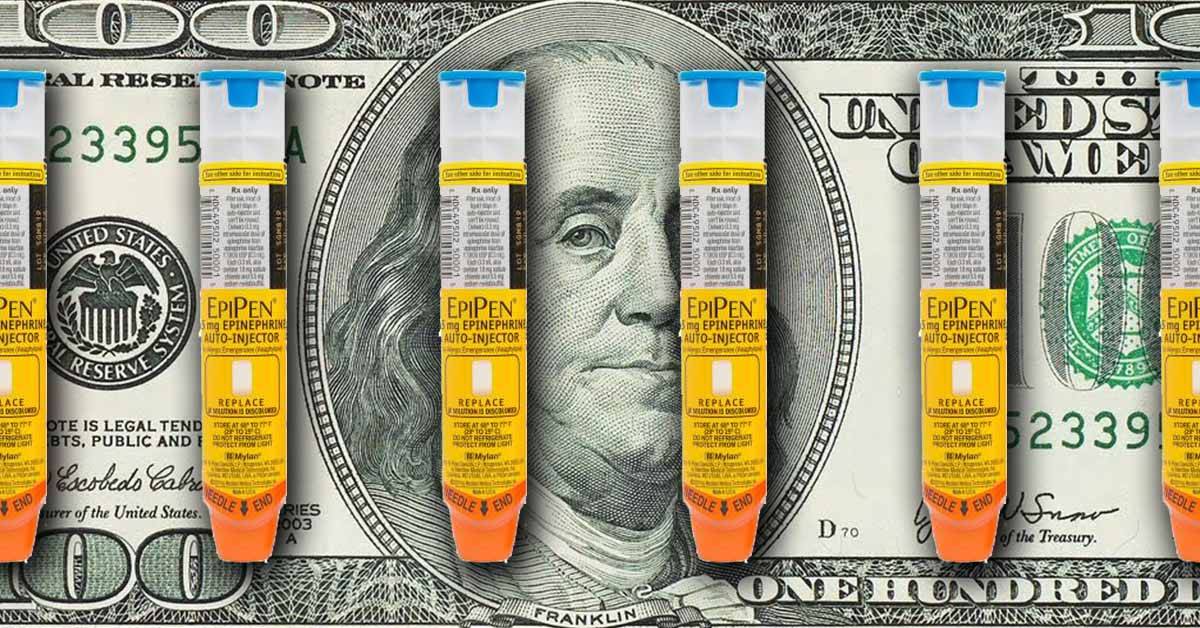Meghan Neri’s health insurance used to cover the majority of the cost of epinephrine auto-injectors for her two allergic teens, resulting in a $30 copay for a twin pack. Given that she needed two packs for each child each year — enough to carry and leave with the school nurse — the total cost was a manageable $120.
With the new year, Neri was shocked to learn that a twin pack of the exact same epinephrine would cost her $600, meaning her out-of-pocket costs would balloon 20-fold to $2,400.
“It was a little embarrassing to say, ‘I can’t do this right now,’” Neri told NBC News.
The epinephrine itself had not risen in price. What happened is that Neri’s family had switched to a high-deductible health insurance plan to save money. Monthly payments are generally lower with such plans but their deductibles — the amount you must spend before insurance coverage kicks in — is much higher, leaving families responsible for thousands of dollars each year before certain costs — often epinephrine auto-injectors — are covered.
That surprise “sticker shock” forces some families to scale back the number of auto-injectors they purchase or go without them entirely.
“Many families have opted not to pick up their EpiPens because they can’t afford it,” said Dr Purvi Parikh, an allergist and immunologist at NYU Langone Health. “They’re taking the chance that, God forbid, a bad outcome will occur.”
The bad outcome Dr Parikh is referring to is anaphylaxis, a serious, life-threatening reaction to a food, drug, insect venom, or environmental substance. Anaphylaxis causes blood pressure to plummet and airways to narrow, and can result in death if not treated promptly with epinephrine. Allergic individuals are encouraged to carry two epinephrine auto-injectors at all times in case a single dose is insufficient to halt the progression of anaphylaxis.
The 2010 Affordable Care Act expanded access to health insurance to many more Americans who did not have access before. To compensate, insurers “not only raised how much it costs to be covered, but they’ve pushed more of that out onto the patient in the form of high-deductible plans,” Parikh said. “We’ve been seeing this every single year for at least the last seven to 10 years.”
An analysis by the Kaiser Family Foundation found that in 2019, 17% of workers were enrolled in a health plan with a deductible of $1,000 or more. By 2021, it was 50%.
“The average deductible in employer-based health insurance now is over $1,700 per person,” said Larry Levitt, executive vice president of KFF. “What it means is that even when you’re insured, you may not actually be protected from potentially catastrophic health care costs.”
For some families, the deductibles have skyrocketed well above $3,000 leaving them to pay full price for medications they normally would have paid a much lower co-pay for.
Although some medications are covered before the deductible is met — such as for high blood pressure — life-saving epinephrine auto-injectors are usually not. United Healthcare is the only major health insurance company to announce zero out-of-pocket costs for epinephrine on some of its plans starting this year.
“It’s typically up to insurers — and employers in the case of workplace health benefits — whether any health care services and drugs are exempt from the deductible,” Levitt said.
Neri contacted her physician to discuss other options regarding auto-injectors. She switched the family to a different brand of emergency epinephrine and now pays $25 per twin pack — likely because the new brand is a generic covered under their health insurance’s formulary.
She said, “We were going to spend what we needed to keep them safe. But it’s helpful to have enough information to make an educated decision and not feel like you’re throwing money away unnecessarily.”
Levitt said that patients should feel empowered to question high prices:
“It’s a lot of work but if you’re faced with a claims denial, if you’re faced with a high cost, fight it. Fight it with your health care provider, fight it with your insurance company.
“No almost never means no in health insurance. You can often win.”






